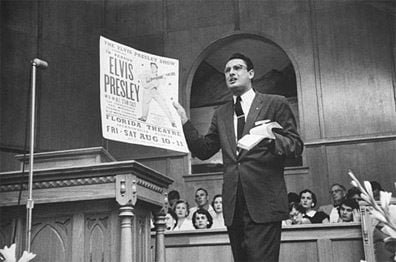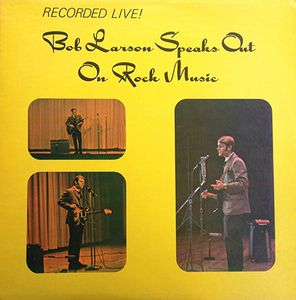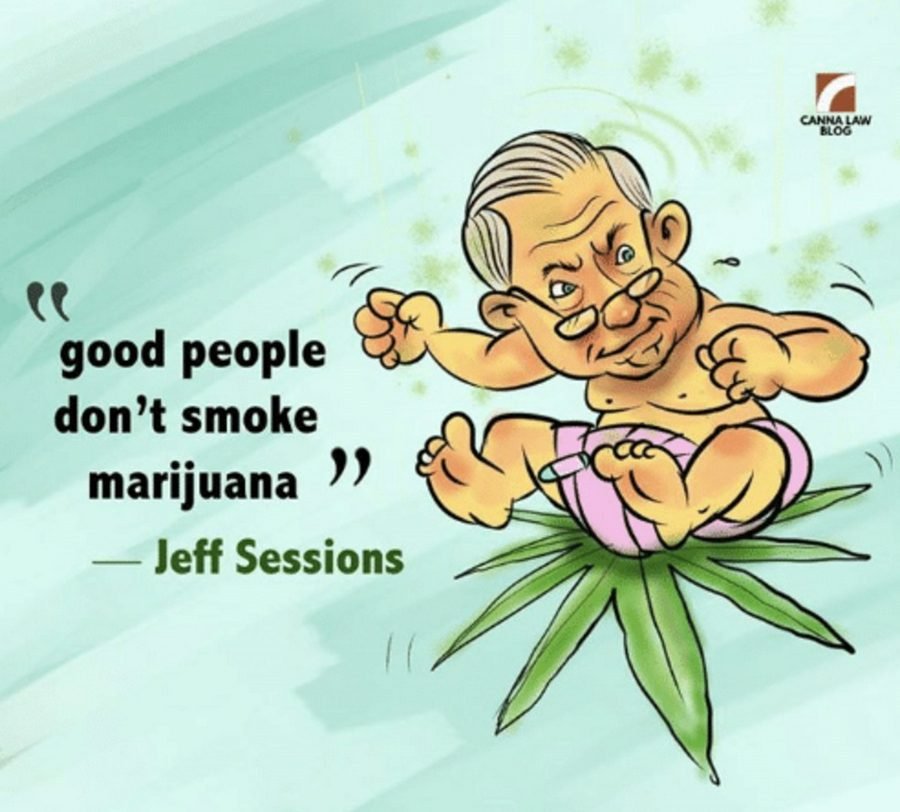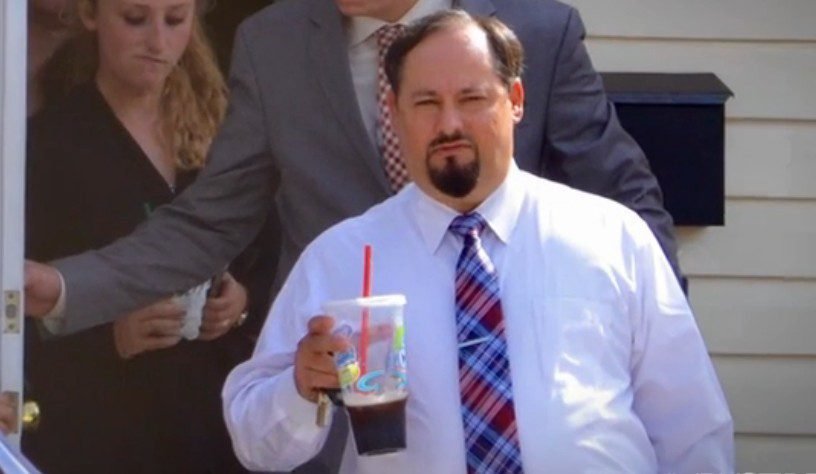
Rock music has always been a problem for Evangelicals. Rock music is generally considered worldly, sinful, and Satanic, and parents are told to keep their children away from its influences. Rock music is considered a gateway to a world filled with illicit sex, drugs, and Satanism. Several years ago, a homeschooling mom by the name of Leslie published an article on her blog titled, The Truth About Rock Music. Here is some of what Leslie had to say:
Rock music has always had a satanic influence. It does not really take all that much research to figure that out. Just google the Beatles and Hinduism and you will see it almost immediately. They were very open about their Hindu activity and even secular websites confirm this. But, as wild as the 60s were, the society wasn’t quite ready for outright false religion and songs promoting open sex and drug use and so many of their song lyrics had double meanings and hidden agendas.
Of course, all the changes in the last 50 years have made hidden agendas and double meanings unnecessary. This has happened through a very systematic hardening of our consciences. And so evil and ungodly lyrics have been eagerly accepted by a fan base that doesn’t pay any attention at all to what they are filling their brains with.
….
I then moved on to the artists themselves. Who were these people that were coming into our homes and cars on a regular basis through their music?
With the 80s influences of Madonna and Micheal (sic) Jackson– who were perhaps some of the first openly satanic artists to be played on the radio– the way was paved for many more to come. Recent rock stars such as Beyonce, Kesha, Katy Perry, Lady Gaga, Jay Z, Eminem, and Nicky (sic) Manaj (sic) (just to name a few), have filled the American culture with an abundance of ungodly, crude, and sexual lyrics and, even worse, very graphic music videos. This, of course, I suspected before I started doing my research. What rather stunned me however was the plethora of satanic symbols and images. As I studied, I found that many of these artists claim to have sold their soul to the devil or to be possessed by demons. This was by their own admission, recorded on video or found in reputable sources.
….
I write it here because I think most of us are absolutely clueless regarding the danger this music presents to our spiritual health. We just allow this music to play in our homes and in our cars and in the ears of our kids–never giving it a second thought. The tunes are catchy and for some reason that seems to be all we need for it to get our seal of approval.
….
But fast forward my life to just a few weeks ago when I found myself up to my eyeballs in the lewd depravity of the rock music industry. I just can’t even begin to describe how awful it all is. And maybe worst of all–how precious and beautiful young girls and boys, many of them Disney stars as youngsters, are morphed into larger-than-life rock musicians that promote everything God abhors and how so many of their fans–usually tweens and teens– just follow them down into the dark pit.
….
If this music is something that beckons you or someone you love, may I encourage you to do your own research? I think you will be more than a little alarmed and shocked at what you will find out. And may we pray for deliverance of ourselves and our families from the evil influence of this demonic music.
Leslie seems shocked to find out that rock music is filled with references to sex, drugs, and darkness. These elements have always been central themes of rock music. Leslie goes on to say that rock music is Satanic and many musicians have sold their souls to the Devil or are possessed by demons. For people such as Leslie, such things are frightening. However, if there is no Devil or demons, then the only thing that matters is the lyrics. While I agree with Leslie about the lyrical content of many rock songs, I think she greatly exaggerates the effect these lyrics have on people. While it is certainly appropriate to regulate what younger children see and hear, by the time children reach their teenage years they should be able to handle the lyrics Leslie finds so objectionable.
Those of us raised in the Independent Fundamentalist Baptist (IFB) church movement vividly remember sermons about the evils of rock music. Sermons on sex, drugs, and rock and roll were common. Many IFB preachers would recite lyrics from popular songs, showing, in their minds, anyway, the Satanic origin of rock music. Some preachers would warn parishioners of the dangers of the mesmerizing “jungle beat” in rock music. Laden with subtle racist overtones, these preachers told teenagers and parents that rock music had a hypnotizing effect. Once under its influence, people would do horrible, vile things.

In the 1960s and 1970s, men such as Bob Larson traveled the country giving seminars on the evils of rock music. Larson purportedly had been a rock musician. He wrote several books about the evils of rock music: Rock and Roll: The Devil’s Diversion, Hippies, Hindus, and Rock & Roll, The Day the Music Died, Larson’s Book of Rock. In his 1972 book, The Day the Music Died, Larson had this to say about rock music and its effect on listeners:
The basic rock rhythm is syncopation. …. this explains the erotic body movements of dancers to the accompaniment of the syncopated or pulsating rock beat. (page 15)
The origin of this Negro influence was, of course Africa.. These innovations were connected with heathen tribal and voodoo rites. The native dances to incessant, pulsating, syncopated rhythms until he enters a state of hypnotic monotony and loses active control over his conscious mind. The throb of the beat from the drums brings his mind to a state when the voodoo, which Christian missionaries know to be a demon, can enter him. This power then takes control of the dancer, usually resulting in sexual atrocities. Is there a legitimate connection between theses religious rites and today’s modern dances? (page 179)
I was aware of the connection between demons and dancing even before my conversion. I speak from experience as to the effect rock rhythms have on the mind. …As a minister, I know what it is like to feel the unction of the Holy Spirit. As a rock musician, I knew what it meant to feel the counterfeit anointing of Satan. I am not alone in my experimental knowledge of the influence of demonic powers present in rock music. (Page 181)
In his 1967 book, Rock and Roll: The Devil’s Diversion, Larson wrote:
There is no difference between the repetitive movements of witch doctors and tribal dancers and the dances of American teenagers. The same coarse bodily motions which lead such dancers into a state of uncontrollable frenzy are present in modern dances. It is only logical, then, that here must also be a correlation in the potentiality of demons gaining possessive control of a person through the medium of the beat. This is not entirely my own theory. It is the message that missionaries have urged me to bring to the American public. (Page 182)
On Friday and Saturday nights across America the devil is gaining demonic control over thousands of teenage lives. It is possible that any person who has danced for substantial lengths of time may have come under the oppressive, obsessive, or possessive influence of demons. Knowing this, churches and clergymen need to shed their cloak of compromise and firmly denounce rock dances. Dancing is no longer an artistic form of expression ( if it ever was) but a subtle instrument of Satan to morally and spiritually destroy youth. (page 184)
Evangelical preachers also began alerting church members about the subliminal messages (backmasking) rock groups were putting on their albums. Supposedly, if rock records were played backward, people would hear Satanic messages. Led Zepplin’s Stairway to Heaven was supposedly one such song. When played forward the song said:
If there’s a bustle in your hedgerow
Don’t be alarmed now
It’s just a spring clean for the May Queen
Yes there are two paths you can go by
but in the long run
There’s still time to change the road you’re on
Backwards, the words above were supposedly turned into:
Oh here’s to my sweet Satan.
The one whose little path would make me sad, whose power is Satan.
He will give those with him 666.
There was a little toolshed where he made us suffer, sad Satan.
In a January 1982 television program on the Trinity Broadcasting Network hosted by Paul Crouch, it was claimed that hidden messages were contained in many popular rock songs through a technique called backward masking. One example of such hidden messages that was prominently cited was in “Stairway to Heaven…
Following the claims made in the television program, California assemblyman Phil Wyman proposed a state law that would require warning labels on records containing backward masking. In April 1982, the Consumer Protection and Toxic Materials Committee of the California State Assembly held a hearing on backward masking in popular music, during which “Stairway to Heaven” was played backward. During the hearing, William Yarroll, a self-described “neuroscientific researcher,” claimed that backward messages could be deciphered by the human brain.
As with the Satanic ritual abuse hysteria years later, the backmasking scare quickly faded into the pages of history. The last preacher I remember saying something about backmasking told church members that if you played the theme song of the TV show Mr. Ed backwards it contained a Satanic message.
Leslie, the homeschooling mom I quoted above, will learn, as did the preachers of my youth, that all the preaching in the world won’t keep teenagers from listening to the popular music of the day. While parents might be able to keep them from listening to rock music at home, once they go to school they will be exposed to the music of their non-Evangelical peers. Once teenagers start driving or riding in automobiles with friends, the radio will be tuned to the local rock station. Unless parents are willing to lock their teenagers in their rooms, allow them no internet access, and remove radios from their automobiles, it is impossible to keep teenagers from listening to rock music.
Polly and I grew up in homes where rock music was verboten. Despite these prohibitions, we somehow learned the lyrics of the popular songs of our day. In the mid-1970s, we attended Midwestern Baptist College, a strict Fundamentalist institution that banned students from listening to ANY secular music (except classical). Students were not permitted to play anything other than religious music in their dorm rooms. However, once in the safety of their automobiles, students turned on radios and listened to the rock, pop, and country music of the day.
One spring day, Polly was sitting in the Midwestern parking lot listening to the radio. I walked from the dormitory out to her car to see what she was up to. Playing on the radio was Afternoon Delight, by Starland Vocal Band. Polly was singing away without a care in the world. I laughed and then I asked her if she knew what the song was about. She gave me an innocent (and clueless) interpretation of the lyrics. When I told her what the song was really about, she didn’t believe me. To this day, we joke about this story. Such is life in the IFB bubble. My favorite song, by the way, was December 1963 (Oh What a Night) by the Four Seasons.
These days, many Evangelicals have taken a different approach to combating the evils of secular rock music. Instead of outright banning rock music — an approach that has proved to be a dismal failure — Evangelicals promote what is called the replacement theory. If church teenagers are drawn to secular bands that have what Evangelicals consider bad, immoral, or Satanic lyrics, churches and parents suggest that they listen to a Christian alternative. This approach has, for the most part, also failed to keep Evangelical teenagers from listening to secular rock music. First, many of the Christian alternatives are cheap rip-offs of secular bands. Bad music is bad music regardless of the lyrics. Second, many Evangelical teenagers quickly embraced what is now called contemporary Christian music (CCM). However, instead of abandoning their secular favorites, teenagers just added the CCM artists to the mix. Some Christian bands, such as P.O.D., Skillet, and Switchfoot, have been huge successes, both in the secular rock market and the CCM market.
Here is a video by Skillet.
Some Evangelical churches have given up trying to keep church teenagers from listening to rock music. This is understandable, in part, because many Evangelical churches are now using rock music in their worship services. In the 1960s, few churches had drums. But today? Many churches have full-blown bands, complete with percussion sections.
If you are not familiar with what is going on with music in many Evangelical churches, I think the following video clip from a Hillsong New York worship service will prove instructive.
Evangelicals, to some degree or the other, have been waging war against rock music for over sixty years. Based on the videos above, I think I can safely say that rock music has won the war. Like all battles waged against popular culture, prohibition only makes what has been deemed sinful more enticing and popular. Teenagers will always be drawn to that which parents, pastors, and other authority figures say they can’t have. Teenagers are built to try the forbidden and test boundaries. We all did it, and here is the lesson that adults need to learn: we survived. Instead of treating teenagers like toddlers, how about teaching them to make responsible choices? Surely, by now, we have learned that telling teenagers to Just Say No doesn’t work. It is far better to equip them with the requisite skills necessary to navigate the world. Yes, there are real dangers they will face, but rock music is not one of them. I seriously doubt that there are many teenagers whose lives are destroyed because they listened to songs that have sexual or substance abuse references. I am sure there are some who take the lyrics to heart and make bad decisions, but most teenagers, as sixty years of history shows, can listen to rock music without being adversely affected.
For more articles than you will ever want to read on the evils of rock music, please check out the Jesus is Savior website, operated by a rabid disciple of the late Jack Hyles.
Bruce Gerencser, 66, lives in rural Northwest Ohio with his wife of 45 years. He and his wife have six grown children and thirteen grandchildren. Bruce pastored Evangelical churches for twenty-five years in Ohio, Texas, and Michigan. Bruce left the ministry in 2005, and in 2008 he left Christianity. Bruce is now a humanist and an atheist.
Connect with me on social media:
Your comments are welcome and appreciated. All first-time comments are moderated. Please read the commenting rules before commenting.
You can email Bruce via the Contact Form.


